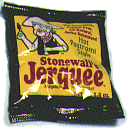

The
cornerstone of Lumen Foods' sales and market
activities to date has its meat replacement products (also
called "meat analogs" by food technologists).
This has only made sense because:
- Meat replacement
plays to Lumen Foods' core competencies,
its manufacturing know-how, proprietary technologies,
processing infrastructure and its
origins,
- Meat analogs, regardless of Lumen Foods' position and
market share, constitute an exploding market segment by
themselves,
- The profit margins in the
snack end of the analog
business are healthier than any other product or line
ever carried by the Company, and
- Analogs are the basis by which most of our customers
know us. It is, perceived if not actualized, our "raison d'etre."
 Nonetheless, the Company
is not restricted to this market alone, and has gone to considerable
trouble in the past to execute
both horizontal (i.e. long-term storable grains
and legumes) and vertical (i.e. meatless entrees) line extensions.
The table at right breaks
down the various product lines we have carried
into conceptual groups so that the
reader can better understand the Company's offerings
to the public in relation to its core business.
Private Label
 There are only two ways
to survive and prosper as a manufacturer: make something branded for
somebody else who has distribution, or create your own
in-house brands and create your own markets.
 Not knowing any better,
we do both.
 Lumen's longest standing
private label account -- running since 1993 -- is
Spice of Life, owned
and operated by Gregory Crosby (a successful Hollywood scriptwriter,
oldest grandson to the late Bing Crosby), and his
wife/actress, Spice Williams. Although the
volume is relatively small (about $5,000 per month),
the business is steady, the account matured.
FROZEN FOOD (written in 1999): This is an area of considerable weakness for
the Company. Lumen Foods sells some product, not much,
to small frozen food manufacturers, including Tumaro's
in Los Angeles. There is enormous prospects in this area,
however. One customer, Vegetarian Cuisine, has found reception
by none other than the Veterans Administration hospitals.
The Company is currently negotiating with the owner, Cary Brown,
to have product made at Lumen Foods' facilities for VA hospitals
nationwide. Once fully in place at all government sites, the
volume would require the construction of an entirely
new Lumen Foods' plant.

|
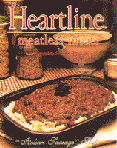
Cooking "Meats"
Heartline (tm) was
one of our original product lines. Its sales volume, as
a percentage of total gross, began
to decrease in the early '90's as more and more families
migrated to quick, complete microwaveable meals.
We cancelled the line in the early 2000's, because
the snack lines are more profitable. However,
Heartline or similar lines can always be produced:
the staff maintains the technical know-how.
|
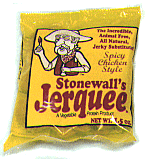
Vegetarian
.. Jerkies
The Company has two snack lines (both in-house
brands):
Cajun Jerky,
first introduced in 1987, and
Stonewall's Jerquee,
introduced in 1992. Because the "category" is still small,
Stonewall's Jerquee is currently the best-selling
vegetarian jerky in North America. By 1999 it was rated
one of the top three movers in health stores in
the Northeast two years in a row by Whole Foods Magazine, and it
has received noteworthy
testimonials from retail store operators. It is a
matured product line with a devoted base of loyal customers.
|
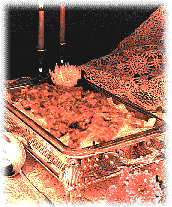
Meatless
Entress
In the face of declining sales of Heartline,
in 1999 the Company
put its attention into marketing finished meals that
incorporate its analogs. The most successful
move in that direction was the
partnership between Lumen Foods and
U.S. World Foods of Illinois -- which
ended when U.S. Worlds Foods went out
of business, owing over $35,000 in
receivables.

Operating from 1998 to 2000, the Company sold its products
to Department of Corrections accounts in three states
(Indiana, Illinois, and Tennessee), and through
U.S. World Foods had a
multi-million dollar contract set up with
AlpineAire Foods,
itself a $50 million a year food manufacturer and
marketing concern. At the time, AlpineAire has requested
that a few minor modifications be made before initiating
its marketing campaign and placing its first order.
With the crash of the "survivalist" market in 2000
(which periodically happens because survivalism is
a "boom and crash" market with peaks and troughs),
the entire campaign was put on hold. However, it is
something Lumen Foods can readily re-enter
as each subsequent "boom wave."

Long-Term
Storable
Foods
One of the components of nearly all long-term storage
food programs is TVP or "textured vegetable proteins."
Because TVP's, in their native state, are vastly
inferior to Lumen Foods' own analogs: in taste,
flavor, mouthfeel, and meal integration, we knew
we had to jump into this business when Y2K
concerns started heating up in the summer of '98.
What came out of that effort was a very extensive line
that consumed better than half of our
online
Virtual Store. Although initiated because of Y2K,
this line can be readily constituted -- and was only
discontinued because the Caton's attention was
diverted to built Alpha Omega Labs
(herbhealers.com), which had higher profit margins.
However, the infrastructure is in place for any
management team which wishes to add this market back
to the Company. Taking advantage of its operating
leverage, Lumen Foods could have staying power in
this market for the same reason
that our competitors were going strong before Y2K came
along: the world isn't going to see an end to hurricanes,
tornadoes, floods, earthquakes, fires, or the conditions
these disasters create anytime soon... Hurricanes
Katrina and Rita amply demonstrated that in 2005.
So, neither will we
see an end to people who have the good sense to prepare
for them well in advance.
|

Dehyrated
Fruits &
Vegetables
This line extension came out of our move into
long-term storable foods in 1999. It
was once a
popular
destination on our web site. It should
be added back to the site with long-term
storage foods.
|
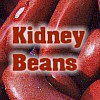
Bulk Grains & Legumes
When we got into the long-term food storage business
we assumed that the grain and legumes commodities market
was hotly competitive.
Our entry point was super pail preparation.
However, when we started placing all of our
raw grain and legume orders in 45,000 lb. truckloads, we found
that there are substantial profit margins in the pipeline.
So
we jumped into the wholesale end of the business,
initially just to increase our economies of scale and
minimize freight-in costs. But the products themselves
are quite profitable as well: some legumes see has much as a
100% markup from the processor to the wholesaler. Not one to miss
an opportunity, we entered this market in early '99 and
are seeing a ready increase in sales from other repackagers
and retail bulk sales entities. This was a neat bonus
from our long-term storage business we hadn't even counted on.
|

Natural Preservatives
In 1999 Eastman Chemical was fined $15,000,000 by
the Federal Trade Commission for price fixing "potassium
sorbate," a food-grade preservative. What should have been
costing Lumen Foods about $2.80 a pound at that time
was running $4.58 a pound. For 10 years.
We were not able to participate in any of the
resulting class action lawsuits that were springing
up like crab grass (primarily because only California has
the "Cartwright Act" which allows you to penetrate through
resellers), but we found our own way to get even: we
began importing food-grade chemicals from China,
starting with potassium
sorbate and sodium
benzoate, and
selling
them on the our site.
Several years later, in
2003, Greg Caton,
Lumen's founder, discovered a novel way to take
improve food preservation for intermediate moisture
food products, like those Lumen Foods creates,
and he patented a process which would later
become Global
Preservatives. As a result of the U.S. Government's
actions against Alpha Omega Labs,
the Caton's sold their interest in food preservation
to Woodward Investments in late 2003, and
Global Preservatives is a profitable
manufacturing company in Lake Charles today.
| |
|





 Lumen's longest standing
private label account -- running since 1993 -- is
Spice of Life, owned
and operated by Gregory Crosby (a successful Hollywood scriptwriter,
oldest grandson to the late Bing Crosby), and his
wife/actress, Spice Williams. Although the
volume is relatively small (about $5,000 per month),
the business is steady, the account matured.
Lumen's longest standing
private label account -- running since 1993 -- is
Spice of Life, owned
and operated by Gregory Crosby (a successful Hollywood scriptwriter,
oldest grandson to the late Bing Crosby), and his
wife/actress, Spice Williams. Although the
volume is relatively small (about $5,000 per month),
the business is steady, the account matured.